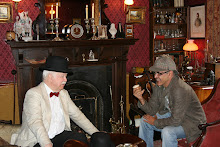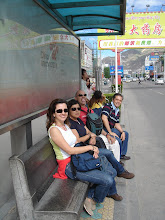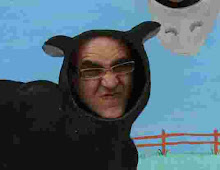Bariloche is a small beautiful town (130.000 inhabitants) situated in the foothills of Andes. Its name came from Mapuche language (Vuriloche), meaning the people from beyond the mountains, designating the people that cross the Andes from Chile and settle down near the Lake Nahuel Huapi.
The actual town was developed from a Drugstore installed there by a german at the end of XIX century, which provoqued a migration of German, Austrians Sloveneans and Switzerlands and it is sorrounded by lakes and imponent mountains (Cerro Tronador with 3500m high, Cerro Catedral and Cerro Lopez). This landscape, which in fact is very similar to the European Alpes, of mountains and Glacial lakes, makes it a perfect oasis in th desert landscape you have to cross when coming from the Atlantic, and gives the city a perfect natural ground to live from tourism, mainly for skiing and mountain climbing lovers. These situation makes this city one of the most important urban centers in the foothills of argentinian Andes.
This was the biggest (and more modern) city we visit in our long tour. From that point on, we would travel towards the wilderness we all desired from the beginning. Enjoy the beautiful scenary with Rumba de La Noche (Govi).
Bariloche deve o seu nome à designação ao movimento dos indios Mapuche originários do Chile que se movimentaram para além dos Andes. Vuriloche (em Mapuche) significa o povo para lá das montanhas, que por misturas de linguagem e erros ortográficos no registo acabou por "chegar" a Bariloche.
Bariloche é uma cidade centenária, fundada em final do Sec. XIX a partir de um armazém ali instalado por um alemão, que originou um movimento de gente e expansão. A cidade (de 130.000 habitantes) estende-se pala cordilheira andina abaixo até ao Lago Nahuel Huapi e encontra-se cercada por uma data de cerros (Cerro Tronador com 3500m de altitude, Catedral e Lopez), constituindo um verdadeiro oasis verdejante na paisagem deserta que se atravessa quando se viaja desde o atlantico, assinalando o inicio da cordilheira andina. Uma paisagem fascinante de montanhas, lagos e bosques, lembrando a zona dos Alpes, na Austria e na Suiça. Talvez por isso, a origem da cidade se deva principalmente a suiços, austriacos, alemães e italianos, que talvez tenham encontrado ali uma forma de não sentir saudades de casa. Actualmente vive essencialmente do turismo, sobretudo dos amantes do Ski e do alpinismo, mas também pelos passeios pelo lagos, através dos quais se pode chegar ao Chile, o que a torna numa das mais importantes cidades da faixa andina argentina, a mais desenvolvida e mais antiga que haveriamos de atravessar em todo o percurso patagão, até à hora de encetar o regresso. Sintam o seu maravilhoso enquadramento acompanhados da Rumba de la Noche (Govi). Daqui partiriamos depois para a parte mais inóspita e profunda da viagem.
.jpg)



